Strukli with Truffles, the Latest Authentic Gourmet Hit in Zagreb County
December 5, 2020 - The secret of one of Zagreb's lesser-known gourmet secrets is slowly getting out, and now there is a new way to try it - strukli with truffles.
One of the most incredible things about Croatia, a land of 4 million people, is the richness and diversity on every level. Every village seemingly has its own dialect words, at least one unique tradition, and often some sort of culinary twist or ingredient which sets it apart form the rest. It is one of the reasons why writing about Croatia is such a fascinating job, for no two days are the same, and there is usually a surprise or three around every corner.
Along with safety and lifestyle, it is one of the jewels of Croatian tourism around which I believe we should build our tourism - the unique authentic experience.
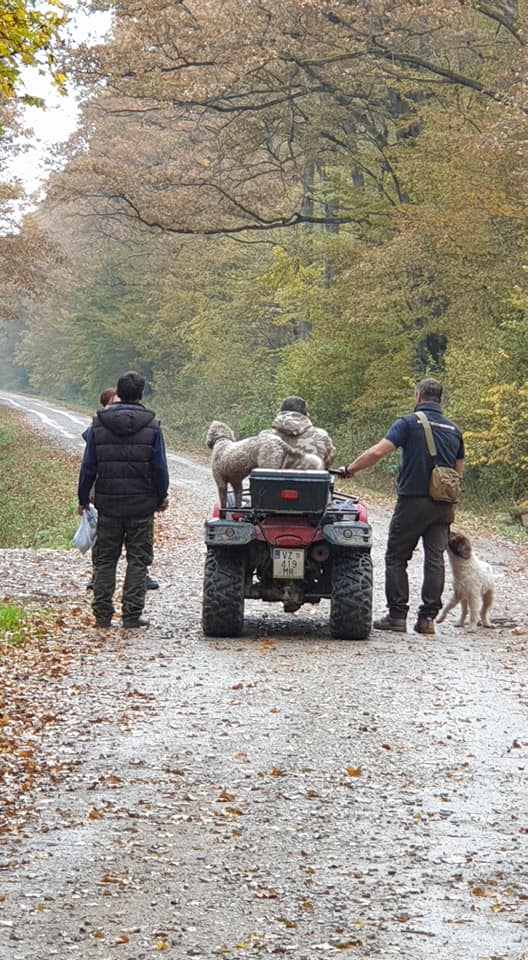
A few weeks ago, for example, I was invited to go truffle hunting near Zagreb Airport in the region of Turopolje. Truffle hunting in Croatia but not in Istria? Just outside Zagreb? I had never heard of such a thing and I was more than a little skeptical. But - and not for the first or last time - I was wrong, and not only can I confirm that the Zagreb truffle industry is alive and well, but also that some of those lovely truffles you are sampling in Istria have their origins in the forests around Zagreb. You can read all about the Zagreb truffle hunting experience in Move Over Istria: the Rise of Zagreb Truffle Hunt Tourism.
But if the truffle hunt was a surprise, so too was the lunch that followed. A Dalmatian restaurant recommended by MIchelin in the heart of Velika Gorica, offering local Turopolje specialities, including black and white Turopolje truffles, including this 135g gem below.
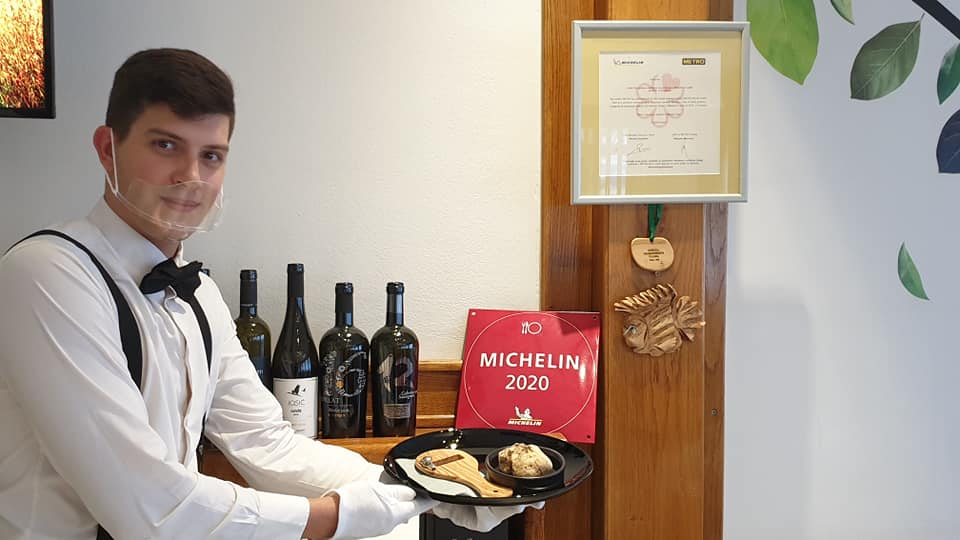
You can read more about the truffle-themed lunch in the article above, but there was one more gourmet addition to a fabulous lunch at Mon Ami restaurant which I only tried later that night when I got home.
Over lunch I was introduced to a very nice young lady called Ivana Belosevic, who ran a bakery called Cipov in the nearby village of Busevec. The name “Cipov” is actually a word used in Turopolje to describe white bread. Cipov was a type of bread only eaten during holidays such as Christmas or Easter. A traditional name for a business which is helping to produce some fabulous authentic Croatian dishes, such as strukli.
But authentic Croatian dishes with a twist.
Such as strukli with truffles.
The conversation at lunch was as good as the excellent food, and I enjoyed listening to Ivana talk with passion about her bakery business, where she has been making homemade strukli now for some 15 years. Another Ivana - Alilovic, Director of the Zagreb County Tourist Board - approached her and asked her what she thought about making strukli with truffles. Zagreb has a great truffle story which is being left untold, and delicious authentic local dishes flavoured with local truffles would be perhaps the best way to promote the story.
And so a new gourmet treasure was born - strukli with truffles.
Strukli is akin to a savoury strudel, with cottage cheese the key ingredient, and one of Croatia's most famous - and popular - dishes. It is best-known in the region of Zagorje, but appears in various formats in other parts of the country. You can see how it is made in the English-language video above. I am not aware of anyone else making strukli with truffles. Ivana's new Facebook page also shows strukli with apricot, and I am sure that a visit to the Cipov family bakery in Bresovec will yield plenty of other culinary delights.
As we previously reported, one of the successful tourism stories in this crazy year was the launch of the Around Zagreb platform, which is a joint effort from the city and county tourist boards of Zagreb. This has helped to considerably widen the scope of tourism possibilities in the capital, in the form of day trip activities just outside the city. In an era of social distancing and outdoor activities, Zagreb County is rich in authenticexperiences - both active and culinary - away from the crowds. and truffle hunting and the sampling of its cuisine fit into this nicely. The pumpkin offer of Ivanic Grad (with its own pumpkin festival), Zumberak trout, and the authentic Samobor quartet of salami, kotlet, mustard and kremsnit, not to mention the local Plesivica wine region, have enough authenticity and unique flavours to entice curious foodies.
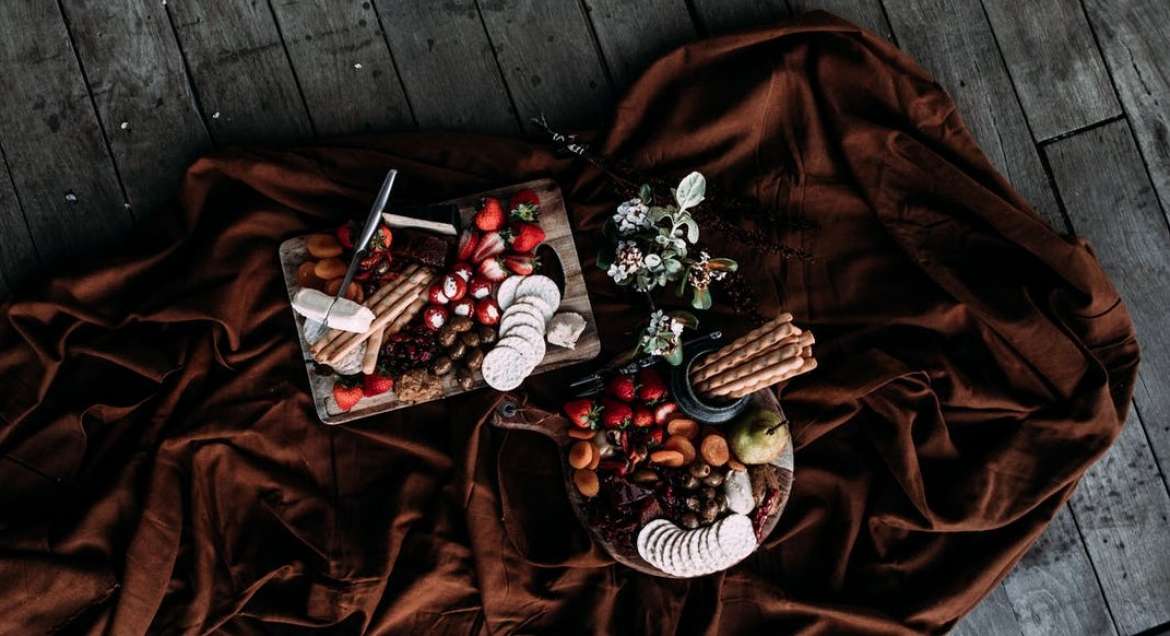
The new strukli with truffles is just one in a number of excellent local authentic product which is made with passion and care by small local family businesses. Individually, they are tiny businesses struggling to survive, especially in this most challenging of years. Collectively, they offer a fascinating web of authentic excellence, which shows the true diversity of Croatia's traditions and heritage. both culinary and otherwise.
In another nice initiative that we reported on recently, the regional tourist board has launched a seasonal campaign to both highlight and promote these businesses.
The local producers are collected in interestingly designed categories that will change in weekly cycles from December 3 to December 24: 1. Relax and reward your body, 2. Decorate your home with Christmas magic, 3. Prepare your holiday table, and 4. Sweet Secrets of Zagreb County.
"In Zagreb County, there are many craftsmen, hardworking people who turn natural resources from their homeland into unique local products," said Ivana Alilović, the director of the Zagreb County Tourist Board. "At the same time, they combine the traditional and the modern. With their creativity, they refresh our heritage and enrich the entire offer of the region. Natural cosmetics and healthy food, medicinal preparations, imaginative decorations and everyday items for the home, irresistible treats etc. Each of these products bears the signature of its origin and its author."
"Production is usually small and limited, but with a high level of quality and personal commitment. Domestic goods that are truly domestic, but also different. We want to raise awareness about the importance of buying from local producers and help all of them in the branding and promotion of products that we can be proud of."
For the latest travel info, bookmark our main travel info article, which is updated daily.
Read the Croatian Travel Update in your language - now available in 24 languages.
Croatian Skier Filip Zubčić Wins Giant Slalom in Santa Caterina!
December 5, 2020 - Great news from the Croatian skiing world today as Filip Zubčić wins the giant slalom in Santa Caterina, Italy!
HRT reports that Croatian skier Filip Zubčić won the giant slalom on Saturday in Santa Caterina, Italy, with a time of 2:15.06 and a 12-hundredth advantage over second-placed Slovenian skier Žana Kranjec.
Kranjec, who finished the first run as the leader, achieved a time of 2:15.18, and in third was the Swiss skier Marco Odermatt with a time of 2:15.36 and 30 hundredths of a second behind Zubčić.
The Croatian skier finished the first run in sixth place, and a fantastic second run secured him his second World Cup victory in his career. He was the only Croatian representative in Santa Caterina to take over the organization of the two giant slaloms from Val d'Isere, France.
This is Zubčić's best result this season and his second victory in the World Cup. Last season he won the giant slalom in Naeba, Japan, and in addition he reached two other places (Hintestoder, Adelboden).
To read more about sport in Croatia, follow TCN's dedicated page.
Croatia Confirms 4,084 New Coronavirus Cases, 70 Deaths in Last 24 Hours
ZAGREB, December 5, 2020 - A total of 4,084 new coronavirus cases and 70 infection-related deaths have been confirmed in Croatia in the last 24 hours, the national coronavirus response team said on Saturday.
The number of active cases currently stands at 24,495. It includes 2,514 patients receiving hospital treatment for COVID-19, of whom 259 are on ventilators.
Since February 25, when the first case of the infection was confirmed in the country, 147,454 people have been infected with the novel virus, of whom 2,102 have died and 120,857 have recovered, including 3,709 in the last 24 hours.
Currently 60,581 people are in self-isolation. A total of 801,545 people have been tested to date, including 10,662 in the last 24 hours.
PM: Affirmation of Croatia's Credit Rating Proves Gov't Responded Well to Crisis
ZAGREB, December 5, 2020 - Croatia's having kept its investment grade credit rating proves that the government's response to the crisis has been good, Prime Minister Andrej Plenkovic said on Saturday in reference to a report by Fitch Ratings, which affirmed the country's investment grade rating for the third time this year.
Fitch Ratings has for the third time this year affirmed the country's investment grade rating, which is owing to an expected gradual recovery from the coronavirus pandemic and the government's strong aid measures, accession to the Exchange Rate Mechanism II (ERM II), and fiscal consolidation having been maintained, Plenkovic stressed in a statement.
The latest decision by Fitch Ratings also confirms the stable outlook for future trends. The agency underlines the importance of political stability and fast government formation following the HDZ party's victory in the July 2020 parliamentary election, as well as the adoption of the budget for 2021 and the fifth round of the tax reform.
"The fact that our credit rating has been kept in the investment category confirms that during the coronavirus pandemic we have managed to maintain economic stability without major imbalances, made progress on the journey to the euro area and joined the ERM II and that we have provided high amounts of aid to the private sector to preserve jobs. We are continuing to pursue a prudent fiscal policy, focusing on further reforms and reduction of the tax and administrative burden so as to improve the business climate and boost investment," Plenkovic said in the statement.
He noted that quality crisis management had shown that Croatia was able not only to have its rating kept in the investment category with Fitch and Standard&Poor's but also to make progress with Moody's as the most conservative credit rating agency.
Fitch expects Croatia's GDP to drop by 9% in 2020 as a consequence of the coronavirus pandemic. In 2021 it expects a moderate growth at a rate of 3.8% and in 2022 it forecasts that growth will pick up to 6%, which will also be owing to EU funds, whose contribution is estimated to account for two percentage points of economic growth in 2022.
Fitch believes that Croatia's entry to ERM II in July this year has contributed to the rating having stayed in the investment category and says that it could upgrade it by two notches between admission to the ERM II and joining the euro area.
In 2020 Fitch expects an 8% budget deficit. The budget deficit is expected to go down to 3.5% of GDP in 2021 and further to 2.2% in 2022. This confirms that the government has continued to implement a stable fiscal policy for which Fitch says that it has been yielding results above fiscal targets since 2016.
Fitch's decision to affirm the country's credit rating is also owing to more than €24 billion having been made available to Croatia from the EU's Multiannual Financial Framework and Recovery Plan in the coming decade.
The government recalls in its statement that Fitch had kept Croatia's credit rating outside the investment category from August 2014 to June 2019, when it was returned to the investment category where it has stayed since.
From Hvar to Tanzania: Young Croatian Volunteers to Help Poor Children
December 5, 2020 – As Croatia counts a record number of coronavirus cases every day, young Croatian Romano Malečić decided to set out on a big journey from Hvar to Tanzania to volunteer as a teacher. On the occasion of the International Volunteer Day which is celebrated today, here is his story from 9000 kilometers away.
While his peers from Hvar were enrolling in college, 19-year-old Romano Malečić had different dreams. In Croatia, taking a gap-year is not as common as in other countries, but Romano decided to do just that – take a break for a year or two after high school and try volunteering in Africa.
"I knew that after graduating from high school I didn't want to enroll in college right away, because I just wouldn't be ready. All this was inconceivable and ridiculous to me, that at the age of 18 when I was just beginning to define and develop as a person, I have to make one of the most important decisions in my life – what college to enroll in or what to do for the vast majority of my life," said Romano honestly, who did not give in even under pressure from the professors to enroll in any college, just to study something.
A last-minute, but firm decision
At no cost did he want to go the standard way to enroll in college after graduating from high school, find a job in the profession after graduation, start a family, and not experience anything interesting in life. For this reason, the choice to pause the year for Roman was quite logical, no matter how hard it was for the people around him.
He says that while making the decisions, he always "goes with the flow", so he made his decision to go to Africa at the last minute, and he planned and realized the whole trip in just one week.

The pandemic did not frighten him at all. Watching European countries close again and tighten epidemiological measures, he looked for a place where he could escape. When he learned that Tanzania was open without any restrictions, and since it had always been his dream to volunteer in that very African country, the question was – now or never.
He bought a plane ticket to Dar es Salaam, the capital of Tanzania, on Wednesday, October 28, told his parents about his decision on Thursday, and took off on Sunday, November 1. Like any worried parent, Roman’s parents initially disapproved of his idea of going to Africa in the middle of a pandemic. However, they tried to understand his decision and eventually let him develop and grow, follow his dreams, regardless of the fear and pressure of society, for what is Romano infinitely grateful to them.
'Children here are honest and happy'
Before the flight, he had to be vaccinated against hepatitis A, typhoid fever, and yellow fever. The trip to Arusha, his destination where he is currently located, took a full 3 days. From Hvar, he first went to Vienna, from where he had a flight via Istanbul to Dar es Salaam, the capital of Tanzania. Upon arrival in Tanzania, he stayed in Dar and finally, after a few days, set off on a 15-hour bus ride to his last stop – Arusha.
"Intensive preparations started only 4 days before the trip, on the day I bought the plane ticket. I didn't know much, except that I'm going, and I planned most of it along the way (except vaccinations), including the volunteering. I decided to look for volunteering opportunities when I arrived in Tanzania," says Romano, not knowing that he would dare to go on such a trip.
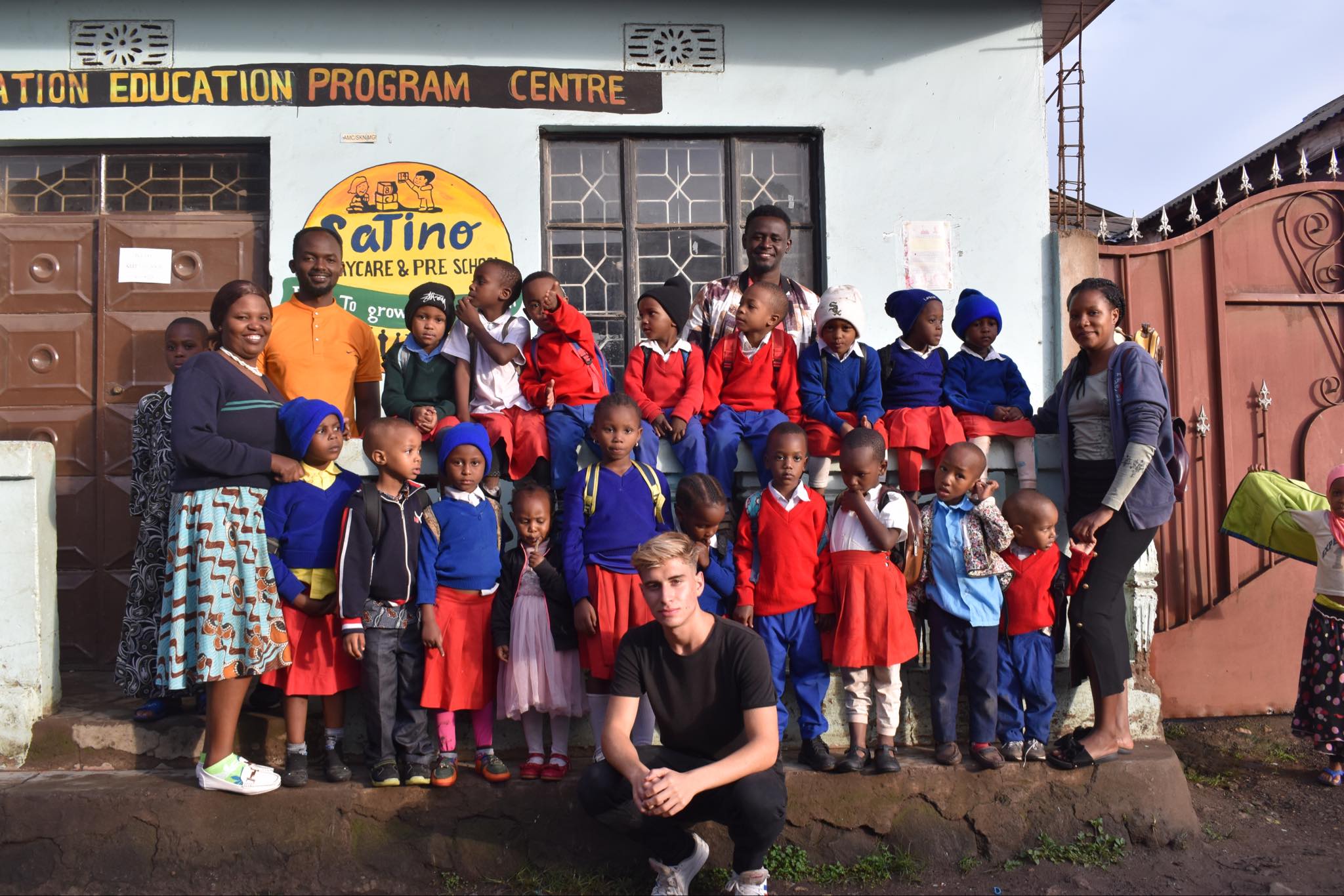
Romano found a volunteering project through the organization SATINO (Save and Teach the Innocent). Now, he helps poor children and teaches them English and math. As he previously explained for Slobodna Dalmacija, employees and volunteers take care of 65 children aged three to six and 25 between the ages of 13 and 17 from seven in the morning until eight in the evening. They are not abandoned, but they come from low-income families and any help is welcome, especially since they have to set aside seven dollars each month for the organization in which Romano volunteers. For some, it is a ridiculous amount, but for these children and their families, it is very unattainable.
As he says, children in Tanzania differ from our children only in the living conditions in which they live.
"There are people who often say that I could have stayed and volunteered in Croatia, and I am aware that there are children in Croatia who also have a tough childhood, but these children depend on the help of others. The hygienic minimum is not met here because there is no soap or running water in the school, and to learn English, they depend on volunteers because there are not enough qualified teachers. They don't have much, they are poor, but honest and happy, because they are not aware that there may be something better out there for them," says Romano.
"They are most interested in white people or 'muzungu' as they often shout after you in passing, which means 'white man' or 'aimless wanderer'. Kids run after you trying to touch you, especially your hair, out of curiosity because you simply stand out whether you want to or not. Those looks, touches, and feats might be ‘too much’ for someone, and they were for me, especially in the beginning while I was still adjusting to a new environment, but when you get used to it and realize that most kids are well-meaning and just curious because they don’t see whites every day, you get used to it. And they love it when you carry them.
He constantly tells African children stories about Croatia, especially about his native Hvar, but also about Dalmatia, food, and fish. The indispensable topic of conversation is, of course, football and Luka Modrić, their great football idol.
This is what his average day of volunteering in Africa looks like:
"From Monday to Friday, I'm already in school at about 8 am because my first class is from 8:30 am to 10:30 am. I'm teaching preschool children, from 3 to 6 years old, 25 of them. Depending on the day, with the help of educator Jackline, we teach them either Swahili, or English, or math. Mostly it’s the basics, numbers, and letters.
After the preschool education and breakfast (fried bananas or ‘ndizi za kukaanga’ as they say here), from 11 am to 1 pm I have a second lesson, English, to prepare 24 children for the high school, what I run on my own.
Around 2 pm, we have lunch together with the children. Most often it is either rice, polenta, bananas, or beans, ie carbohydrates because they are the cheapest. After lunch, the kids go to bed, and we always have some work in between, cleaning, or correcting their exercises and tests," says Romano.
Around 5, when the children wake up, they play and dance until 8 when the parents pick up their children.
After a long day of teaching and playing with the kids, Romano goes home. If it’s Thursday, Friday, or Saturday, then he goes to the club and even to African weddings, where he’s been twice already.
Tanzania is fighting the pandemic in its own way. Their president, after testing watermelon, papaya, and goat on COVID-19, and after testing them "positive," declared the coronavirus pandemic a scam. In Tanzania, therefore, there are currently no restrictions or social distancing, and Romano says he has not seen a single face mask in this one month.
Romano believes that "if an African country can cope with a pandemic, the highly developed West can definitely do too." At the moment, everything is open in Tanzania, cafes, restaurants, and clubs, and people live normally.
'I want to help and there is no going back'
Romano modestly admits that sometimes, despite all the variations of bananas and rice, he misses his mother's food. But he doesn't want to split hairs, because, during his one-month stay in Tanzania, he saw things that, he says, opened his eyes and he could not remain indifferent to the unspoiled smiles of children.
"Behind those smiles, unfortunately, lies a difficult reality that these children are not aware of because they do not even know that there is something better somewhere. As I was lecturing, I saw the materials they use for learning, worn-out pencils taped with duct tape, one eraser for 20 children, torn and printed notebooks, crumbling backpacks, and clothes and shoes not to mention. I will only tell you that uniforms are worn to conceal their clothing and thus to mask material inequality," says Romano, who was therefore encouraged to launch a charity action to collect donations for children's necessities, but also the renovation of their school building.
Namely, the space they are currently using is rented, so it is expensive and unsustainable. They started building their own school building 3 years ago, but construction was suspended due to insufficient material resources.

"I think that every child has the right to the basics, including education. It is the only chance for them, I think, the only way out that from this sadly corrupt system that has no interest in the people of this beautiful but massively exploited continent living as befits the 21st century. Education is something that no one can take away from them, it is 'the most powerful tool for changing the world', as Nelson Mandela would say," says Romano. It is for this reason that he wants to help these little ones, 65 of them, on whose future we can influence.
The school building in the making
"Even though I was aware of it before, I realized how privileged I am in life just because I was born a little further north, on another continent. I learned to appreciate more what I have and manage without the basics (running water, shower, toilet), and I also perfected hand washing. As a result, I met a different culture, tested my limits, and looked at things from a different perspective – a gratitude perspective," concludes Romano, hoping that little by little, both he and other volunteers will contribute to positive change through their work.
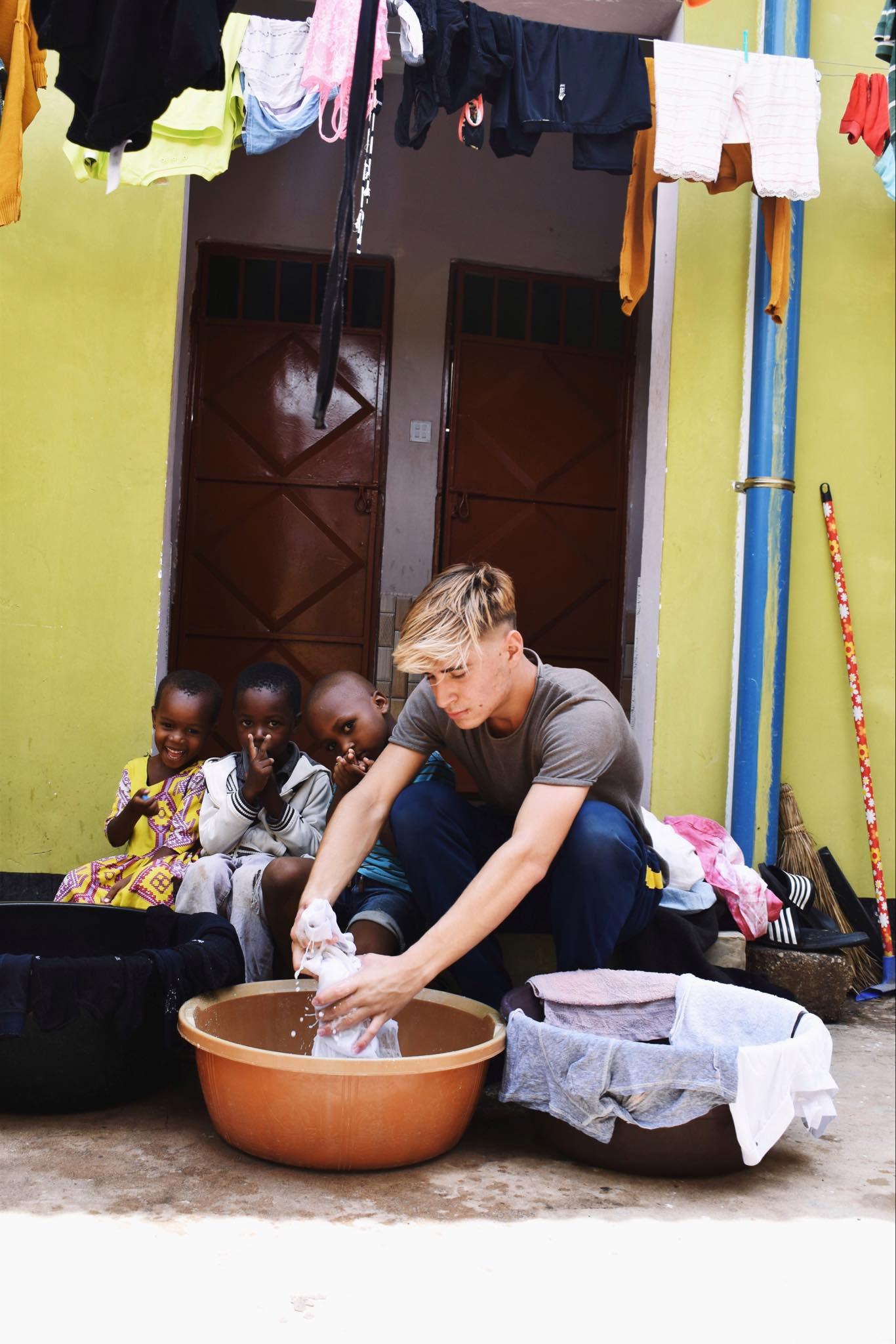
Before Tanzania, he had no previous volunteer experience, but, by all accounts, this is certainly not his last volunteering project in the world. Romano jokingly says he'll come back when the clubs re-open in Europe, but since it is not possible to plan much in advance at the moment, he will go "one step at a time" and plan to return to Hvar along the way.
Romano collects donations for children to buy them school materials, food, and hygiene supplies. If you also want to help, you can make a payment to his account: HR5223400093234047872.
He also launched a fundraising campaign to build a new school building, where you can also help with your donation.
All photos are from Romano Malečić's private archive.
For the latest travel info, bookmark our main travel info article, which is updated daily.
Read the Croatian Travel Update in your language - now available in 24 languages.
2020 Women's Handball Euros: Croatia Handball Celebrates after Crucial Win against Favorite Hungary
December 5, 2020 - Croatia handball kicked off the 2020 European Women's Handball Championship with a huge victory against Hungary on Friday evening in Denmark, resulting in a warranted celebration after the game.
The Croatia women's handball team kicked off the European Championships in Denmark with a victory, and in the first match in Group C, played in Kolding, they defeated the favorite national team of Hungary 24-22 (12-12).
Ćamila Mičijević was the best scorer for Croatia with four goals, while Katarina Ježić and Ana Debelić scored three goals each. Valentina Blažević, Marijeta Vidak, Dora Krsnik, Larissa Kalaus and Stela Posavec shook the net twice, and Paula Posavec, Josipa Mamić, and Tena Japundža scored once. Goalkeeper Tea Pijević recorded ten saves.
Hungary was led by Katrin Gitta Klujber with nine goals.
The second match of this group, in which the Netherlands and Serbia will meet, is scheduled for Saturday. Croatia will play against the Netherlands on Sunday (18:15).
In an even match, Nenad Šoštarić's team reached a crucial victory, which could mean a place in the second round of the competition, thanks to a calmer and more precise game in the final 13 minutes in which Hungary entered with a goal advantage (19-18).
However, a 5-0 Croatian series followed, which gave them a decisive four-goal advantage. In the end, Blažević and Debelić scored two goals each, and Kalaus and Ježić scored one goal each. By the end of the match, Hungary only managed to mitigate the defeat.
No one gave Croatia much chance in the opener against Hungary, but they knocked down the favored opponent 24:22.
Just before the opener, the Croatian Handball Federation posted a video of the team's synchronized dance.
But after the match, they sang.
The team erupted into song, specifically Thompson's "Ljepa li si", a Croatia national team standard.
Croatia plays next on Sunday against the Netherlands at 6:15 pm. The advantage for Croatia will also be that the Dutch will have a day less of rest.
Namely, the Netherlands was meant to play against Serbia after the match between Croatia and Hungary, but due to a COVID-19 positive Serbian player, the match was postponed for 24 hours. The Netherlands will not have even 24 hours between the two games.
Source: HRT
To read more about sport in Croatia, follow TCN's dedicated page.
Split Advent 2020: Festive Weekend Ahead with Klapa, Saint Nicholas, and More
December 5, 2020 - Split Advent 2020 continues this weekend with Riva concerts and a visit from Saint Nicholas.
UPDATE: SATURDAY'S RIVA PROGRAM POSTPONED
As part of the second Split Advent weekend under the slogan "Love unites us", on Saturday, December 5, 2020, and Sunday, December 6, 2020, a commemorative Advent program will be held on the Riva from 11:00 to 13:00.
Saturday's Advent program consists of performances by the men's klapa "Ježinac", police klapa "Sveti Mihovil", a duet of Edi Šegota and Mislav Biočina accompanied by the "Cambi" band, while saxophonist Mladen Baučić Baucho and Trio Baucho will entertain all passers-by on the Riva on Sunday. On the same day, December 6, the arrival of Saint Nicholas and Santa Claus awaits, who will greet the children at noon and distribute gifts, respecting all epidemiological measures.
Don't forget, for Saint Nicholas Day, a creative competition has been announced for the smallest artists in the Split area, in which ten of Saint Nicholas' favorite drawings will receive gift packages to their address.
"The drawings can be published by parents on the Split Tourist Board Facebook. After random selection, parents will then submit their address to the Tourist Board. The drawings are collected until Sunday, so don't waste time and submit your artwork for comment here today," said the Split Tourist Board.
"Saint Nicholas has always cared for other people, especially the youngest, and today he is known as a saint who gives to good children. As a bishop, he lived near the village with many children who had no toys. Diligent children cleaned their boots every night to wear them shiny again the next day. As Saint Nicholas was very skilled with wood, he began to make wooden toys to give to children on his name day, hoping to bring a little more joy. When Saint Nicholas grew old, and he could no longer make toys as before, his parents continued his tradition and started putting whatever they had in the house in children's boots, such as candy, nuts, or fruit, wrapped beautifully. Such a custom has continued to this day," they concluded.
In 2020, more than ever, the primordial connection between people is important, which is the guiding thought of this year's Advent in Split under the slogan "Love unites us". From November 28 to January 6, Split will become a source of new hope, relying on the love that unites each person with their loved ones, even when, during a pandemic, they are deprived of intimacy and embrace. The entire event, therefore, will be held in accordance with the measures of the National Civil Protection Headquarters, such as the mandatory wearing of protective masks and keeping a physical distance.
Follow the entire program of this year's Split Advent via the Facebook and Instagram profiles of the Split Tourist Board, where the latest information and interesting competitions are published every day.
To read more about lifestyle in Croatia, follow TCN's dedicated page.
German Online Travel Platform Rates Zagreb Airport the Worst of 30 European Capitals
December 5, 2020 - A German online platform for train, bus, and plane travel, has named Zagreb Airport the worst of 30 capital city airports in Europe.
Index.hr reports that OMNIO, a German online platform for train, bus, and plane travel, has named Zagreb International Airport - Franjo Tudjman the worst of 30 in Europe.
Out of a possible 100 points, the capital city airport received exactly zero.
OMNIO thus rated airports in 30 European capitals. They compared airports by several factors: availability, equipment, leisure facilities, and stress levels.
Among other things, they looked at the number of delayed flights, the daily number of passengers at the airport, and how they are equipped: whether they have showers, "quiet" rooms, restrooms, and places with electricity for chargers. Another criterion according to which the final grade was given was the number of quality leisure facilities offered, including shops, restaurants, and play areas for children.
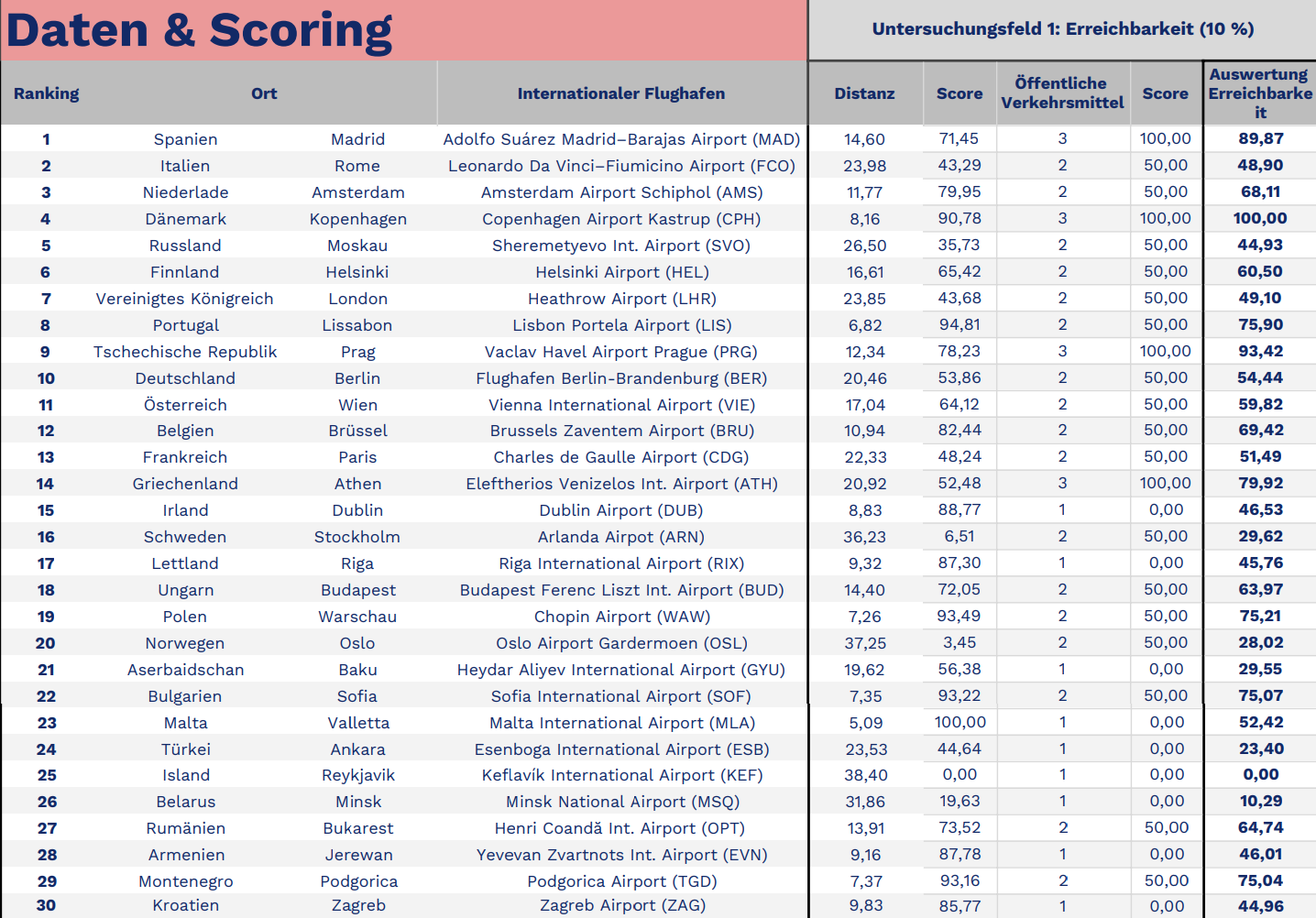
The winner is Madrid International Airport in Spain thanks to "a wide range of shops and restaurants, as well as good connections between the airport and the city center". Rome's Leonardo Da Vinci - Fiumicino Airport is second in line, while Amsterdam's Schiphol Airport is in third place.
In fourth place is Copenhagen, in fifth is Moscow, followed by Helsinki, while the top 10 is closed out by Heathrow in London, Portela in Lisbon, Vaclav Havel in Prague, and finally, Berlin-Brandenburg Airport in the German capital.
Zagreb-Franjo Tudjman International Airport is the worst of all with exactly zero points out of a possible 100. The second worst is the airport in the Montenegrin capital Podgorica, and the third-worst in the Armenian capital Yerevan.
For the latest travel info, bookmark our main travel info article, which is updated daily.
Read the Croatian Travel Update in your language - now available in 24 languages.
Flights to Croatia: KLM Boosts Amsterdam-Zagreb from February 2021
December 5, 2020 - The latest news for flights to Croatia as KLM boosts Amsterdam-Zagreb from February 2021.
Croatian Aviation reports that Dutch KLM, the oldest airline in the world, will introduce the second daily flight on the Amsterdam - Zagreb - Amsterdam route from February 12 next year!
Until now, KLM has operated daily to Zagreb, but from February KLM will operate on this line 14 times a week.
"However, from February next year, we are happy to be able to offer 2 daily flights to Amsterdam. All KLM staff, both on the ground and on the plane, guarantee our passengers the highest level of health and safety. We have taken several sanitary measures on the plane and at the airport, as well as adjusted our sales and refund policy to ensure smooth and safe travel. I hope that this new, additional flight between Zagreb and Amsterdam will be a sign of optimism for the future, offering the opportunity to visit the world, reunite family and friends living abroad, establish new businesses between Croatia and the Netherlands, and welcome new foreign tourists in the country," said Ildikó Kiss, sales manager for the region.
"We would like to express our satisfaction with KLM Royal Dutch Airlines' decision to introduce a second daily flight on the Amsterdam-Zagreb route from February 2021. This news is especially significant in the circumstances when we face significant consequences of the pandemic in global air traffic. We are optimistic about the future and firmly believe that the additional daily flight between Amsterdam and Zagreb will be a bright sign of a new future," said Huseyin Bahadir Bedir, Executive Director of Zagreb Airport.
KLM planes will take off from Zagreb twice a day, at 06:30 in the morning (arrival in Amsterdam at 08:30), and 12:20 (arrival in Amsterdam at 14:30). E175 aircraft have been announced for both daily flights.
The introduction of KLM's second daily flight to Amsterdam will enable an even larger number of connections from Zagreb Airport, and in addition to the Dutch company's two daily flights, Air France is expected to introduce a second daily flight to Paris in the spring of next year.
For the latest travel info, bookmark our main travel info article, which is updated daily.
Read the Croatian Travel Update in your language - now available in 24 languages.
KB Dubrava Doctor: "We've Never Seen a Course of Disease Like This"
December the 5th, 2020 - A KB Dubrava doctor, Bruno Barsic, has described the ongoing situation at KB Dubrava, now known rather ominously as Zagreb's COVID hospital, and how those working there have never seen a disease take such a course before.
As Poslovni Dnevnik writes, Bruno Barsic, a KB Dubrava doctor, spoke for RTL Direkt about why healthy, young non-smokers are ending up in hospital needing oxygen and about other topics related to the spread of the novel coronavirus, SARS-CoV-2.
When asked what was happening on the tenth, eleventh or fourteenth day of this particular illness and why people's condition was deteriorating so abruptly, he said:
''Because this is the natural course the disease takes in what is, fortunately, a small percentage of patients. There are a lot of infected people, so then that percentage of course becomes higher. The course of the disease goes so that it begins as a flu-like stage. After about 5-6 days, you see the first stage of the worsening of the condition, and then it becomes pneumonia, oxygen is then required. For those who need 14, 15 litres of oxygen from the beginning, it's impossible for oxygen to enter the blood. The next stage of it growing yet worse in some patients is lung damage. The blood vessels dilate, then people's lung function worsens," he said.
He said the disease leaves long-lasting changes in the lungs. When asked if we are smarter now and if we know why young people get sick, he says:
"We aren't smarter now to know why this happens to young people. Maybe it's the amount of virus they've taken in. If you receive a smaller amount of the virus, you'll probably have a milder clinical picture. That's why there are masks to protect us. We haven't seen a disease take this sort of course before. We saw swine flu, that was also a new disease for us. But we haven't seen such long-term changes occur in the lungs, nor have we seen these consequences with which we don't know how long-term they're going to be,'' he says.
To the conclusion that treatment for SARS-CoV-2 lasts a very long time, he said:
''That all depends on the patient. Some people can go home in a couple of days, some need over 20 days. When it comes to drugs, we’re not much smarter. The drug we're talking about isn't particularly effective. Now there's a growing need for inhibitors," the KB Dubrava doctor concluded.
For the latest travel info, bookmark our main travel info article, which is updated daily.
Read the Croatian Travel Update in your language - now available in 24 languages


